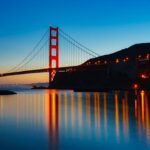A prominent American Arab organization has raised concerns over California’s recently enacted antisemitism law, warning that its provisions are having a chilling effect on free speech. The group argues that the legislation, intended to combat antisemitism, is instead suppressing legitimate political expression and discourse related to the Israeli-Palestinian conflict. Critics say the law’s broad language could lead to self-censorship among activists and communities, sparking a contentious debate over the balance between combating hate and protecting constitutional rights.
American Arab Group Raises Concerns Over California Antisemitism Law’s Impact on Free Speech
American Arab community leaders have expressed deep reservations about California’s newly enacted antisemitism law, warning that it may unintentionally suppress legitimate free speech, particularly on university campuses and public forums. According to spokespersons, the legislation’s broad definitions risk conflating political criticism of the Israeli government with antisemitic rhetoric, leading to a “chilling effect” where activists and educators might self-censor out of fear of legal repercussions or social backlash.
Critics argue that the law’s ambiguous language could undermine open dialogue essential to democratic discourse. They highlight concerns that discussions addressing Palestinian rights and broader Middle Eastern geopolitics might be unfairly targeted. A summary of the expressed concerns is outlined below:
- Overbroad language: Difficulty distinguishing between political critique and hate speech
- Academic freedom: Risk of limiting campus debates and scholarly inquiry
- Community impact: Potential marginalization of Arab and Palestinian voices
| Aspect | Concern | Effect |
|---|---|---|
| Legal definitions | Vague terminology | Ambiguity in enforcement |
| Political speech | Criticism of Israel | Potential censorship |
| Community relations | Arab advocacy groups | Reduced participation |
Analyzing the Legal and Social Implications of the Controversial Legislation
Critics argue that the legislation, intended to combat antisemitism, has inadvertently cast a wide net that threatens constitutional protections surrounding free expression. The American Arab group highlights that such laws can create a chilling effect by blurring the line between legitimate political discourse and prohibited speech, leading individuals and organizations to self-censor for fear of legal repercussions. This raises questions about the balance between combating hate speech and preserving democratic freedoms, especially in a diverse society where minority voices are often marginalized.
Socially, the law’s implications extend beyond legal debates, igniting intense discussions within communities about identity, representation, and the scope of government regulation in speech. Observers point to the risks of:
- Increased polarization among ethnic and religious groups
- Heightened mistrust toward authorities tasked with enforcement
- Potential misuse as a political tool to silence dissent
These factors contribute to a complex environment where the intention to protect vulnerable groups may paradoxically inhibit open, necessary conversations surrounding Israel, Palestine, and broader geopolitical issues.
| Aspect | Potential Impact |
|---|---|
| Freedom of Speech | Risk of self-censorship among activism groups |
| Community Relations | Increased tension and polarization |
| Legal Enforcement | Challenges in distinguishing hate speech from criticism |
Calls for Policy Revisions to Protect Civil Liberties While Combating Hate Speech
Legal advocates and civil rights groups are urging legislators to revisit recent measures addressing antisemitism in California, expressing concern that these laws have a chilling effect on free speech, particularly within American Arab communities. Critics argue the bill’s broad language risks conflating legitimate political expression with hate speech, potentially penalizing activists and speakers who engage in critical discussions about Israel and Middle East politics. This overlap, they warn, threatens the vibrant exchange of ideas that free speech protections are meant to safeguard.
Among the key recommendations for policy adjustments are calls for clearer definitions and safeguards to prevent misuse. Stakeholders propose:
- Specific criteria distinguishing hateful conduct from political discourse
- Procedural safeguards protecting individuals from arbitrary censorship
- Enhanced community engagement to ensure policies reflect diverse perspectives
| Policy Element | Concern | Proposed Change |
|---|---|---|
| Definition of Hate Speech | Overly broad language | Precise legal definitions |
| Enforcement Procedures | Lack of due process | Clear appeal mechanisms |
| Community Input | Limited stakeholder involvement | Inclusive public forums |
In Conclusion
As the debate over California’s antisemitism law continues to unfold, the concerns raised by the American Arab group highlight the complex balance between combating hate speech and protecting free expression. Legal experts and civil rights advocates suggest that navigating this delicate terrain will require careful scrutiny to ensure that measures intended to safeguard communities do not inadvertently suppress legitimate discourse. The outcome of this controversy may ultimately set important precedents for how states address hate speech without encroaching on fundamental constitutional rights.









